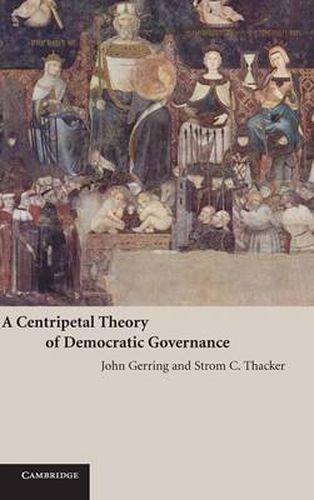Readings Newsletter
Become a Readings Member to make your shopping experience even easier.
Sign in or sign up for free!
You’re not far away from qualifying for FREE standard shipping within Australia
You’ve qualified for FREE standard shipping within Australia
The cart is loading…






This book outlines the importance of political institutions in achieving good governance within a democratic polity and sets forth an argument to explore what sorts of institutions do the job best. By focusing on ‘centripetal institutions’, which maximize both representation and authority by bringing political energy and actors toward the centre of a polity, the authors set forth a relatively novel theory of democratic governance, applicable to all political settings in which multi-party competition obtains. Basing their theory on national-level political institutions, the authors argue that there are three types of political institutions that are fundamental in securing a centripetal style of democratic governance: unitary (rather than federal) sovereignty, a parliamentary (rather than presidential) executive, and a closed-list PR electoral system (rather than a single-member district or preferential-vote system).
$9.00 standard shipping within Australia
FREE standard shipping within Australia for orders over $100.00
Express & International shipping calculated at checkout
This book outlines the importance of political institutions in achieving good governance within a democratic polity and sets forth an argument to explore what sorts of institutions do the job best. By focusing on ‘centripetal institutions’, which maximize both representation and authority by bringing political energy and actors toward the centre of a polity, the authors set forth a relatively novel theory of democratic governance, applicable to all political settings in which multi-party competition obtains. Basing their theory on national-level political institutions, the authors argue that there are three types of political institutions that are fundamental in securing a centripetal style of democratic governance: unitary (rather than federal) sovereignty, a parliamentary (rather than presidential) executive, and a closed-list PR electoral system (rather than a single-member district or preferential-vote system).